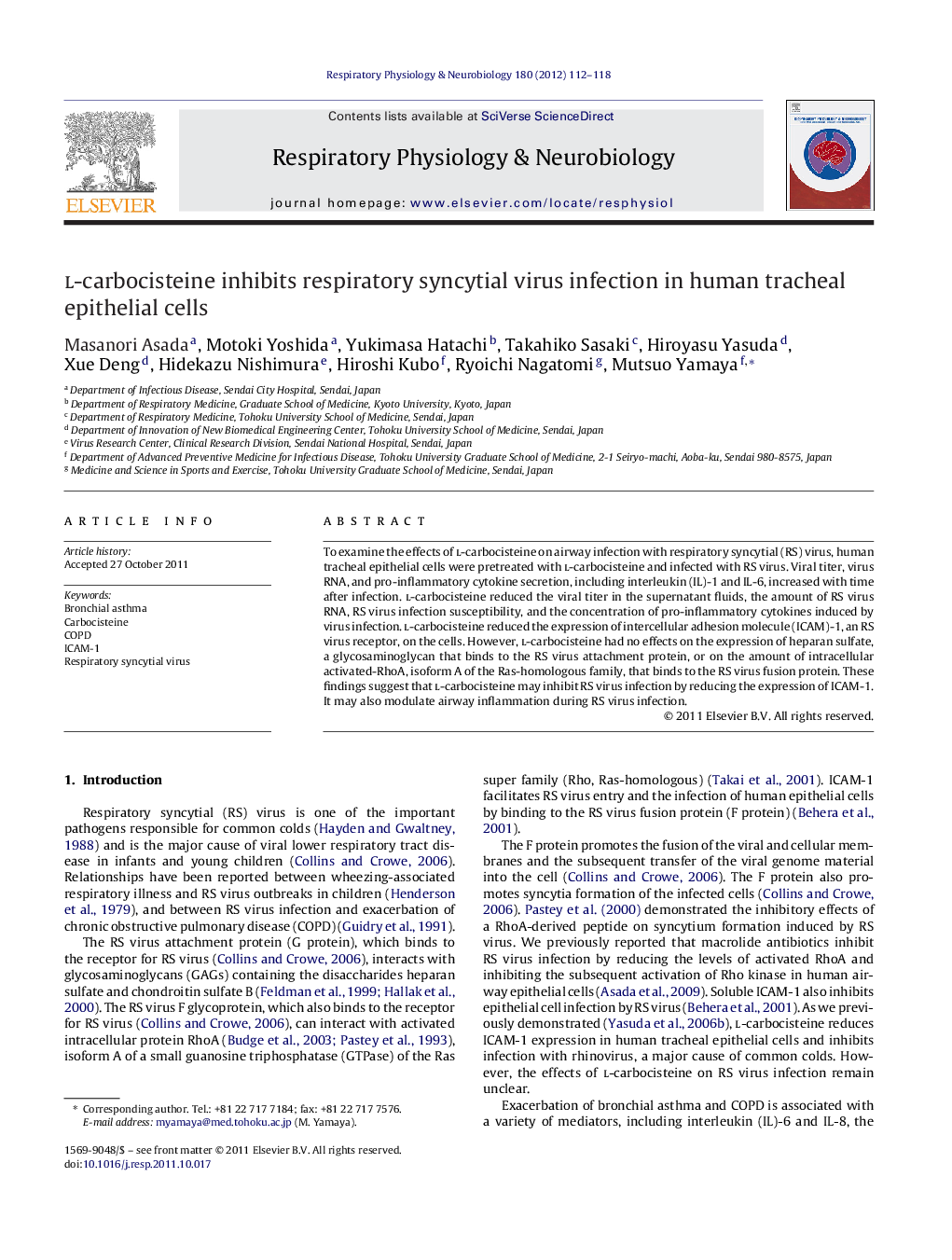| Article ID | Journal | Published Year | Pages | File Type |
|---|---|---|---|---|
| 2847404 | Respiratory Physiology & Neurobiology | 2012 | 7 Pages |
To examine the effects of l-carbocisteine on airway infection with respiratory syncytial (RS) virus, human tracheal epithelial cells were pretreated with l-carbocisteine and infected with RS virus. Viral titer, virus RNA, and pro-inflammatory cytokine secretion, including interleukin (IL)-1 and IL-6, increased with time after infection. l-carbocisteine reduced the viral titer in the supernatant fluids, the amount of RS virus RNA, RS virus infection susceptibility, and the concentration of pro-inflammatory cytokines induced by virus infection. l-carbocisteine reduced the expression of intercellular adhesion molecule (ICAM)-1, an RS virus receptor, on the cells. However, l-carbocisteine had no effects on the expression of heparan sulfate, a glycosaminoglycan that binds to the RS virus attachment protein, or on the amount of intracellular activated-RhoA, isoform A of the Ras-homologous family, that binds to the RS virus fusion protein. These findings suggest that l-carbocisteine may inhibit RS virus infection by reducing the expression of ICAM-1. It may also modulate airway inflammation during RS virus infection.
Graphical abstractFigure optionsDownload full-size imageDownload as PowerPoint slideHighlights► A mucolytic agent, l-carbocisteine, inhibited RS virus infection and decreased the susceptibility of cultured human tracheal epithelial cells to RS virus infection by reducing levels of ICAM-1, a RS virus receptor. ► l-carbocisteine also reduced the baseline and RS virus infection-induced secretion of pro-inflammatory cytokines, including IL-1β, IL-6 and IL-8. ► l-carbocisteine may modulate airway inflammation after RS virus infection.
